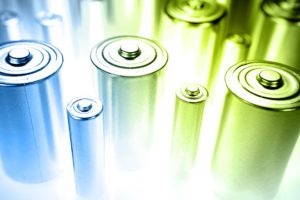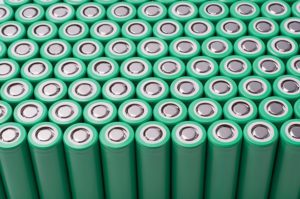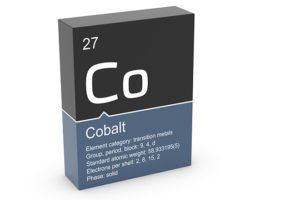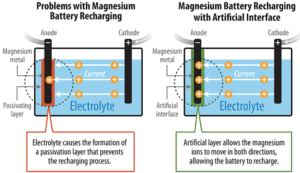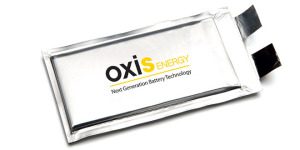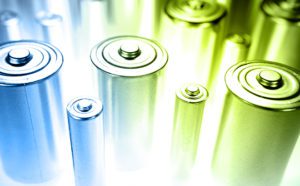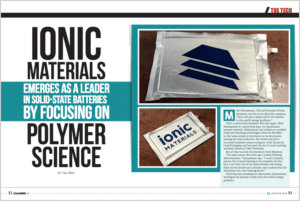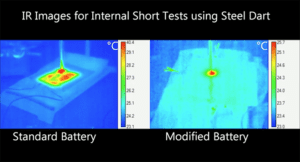Scientists from the University of Waterloo have devised several new electrochemical processes which greatly increase the lifespan and stability of lithium-oxygen batteries. On paper, Li-O2 batteries have high energy densities and low weights. However, they also have internal reactions (involving superoxides and peroxides) that slowly corrode their carbon cathodes. The superoxide also destroys organic electrolytes in the… Read more »
Search Results Found For: "lithium metal batteries"
Penn State researchers develop cold-weather fast charging method for Li-ion batteries
Fast charging cold Li-ion batteries comes with the risk of lithium plating. When metallic lithium is formed in a battery, it can severely reduce battery lifespan and increase instability. Researchers from Penn State have suggested a solution to that problem that can provide 15-minute fast charging and a twelve-year battery lifespan in temperatures as low as… Read more »
Critical Materials Institute to address lithium and cobalt demand
As the market for plug-in vehicles grows, so does the demand for the materials associated with production, particularly lithium and cobalt, which are used in Li-on batteries. The DOE’s Critical Materials Institute (CMI) is focused on recycling and reducing the demand for rare metals that may experience shortages in the future. The agency is also… Read more »
Researchers achieve extended cycle life using molybdenum compound as protective anode layer in Li-S batteries
Researchers at The University of Texas at Dallas have used two-dimensional molybdenum disulfide (MoS2) as a protective layer for Li-metal anodes to greatly improve the performance of Li-S batteries. In “2D MoS2 as an efficient protective layer for lithium metal anodes in high-performance Li–S batteries,” published in Nature Nanotechnology , the researchers report that such a use of MoS2 results in… Read more »
NREL scientists discover new approach for magnesium-metal batteries
Scientists at the National Renewable Energy Laboratory (NREL) have pioneered a method that enables reversible chemistry of magnesium metal in noncorrosive carbonate-based electrolytes. The technology has several potential advantages over lithium-ion batteries, including higher energy density, improved stability and lower cost. Magnesium batteries can theoretically store almost twice as much energy per volume as lithium-ion… Read more »
UK lithium sulfur battery firm OXIS secures funding to expand to Brazil
UK battery technology company OXIS Energy will receive a £3.7-million investment from the Brazilian private equity fund Aerotec, paving the way for OXIS to open a subsidiary in Brazil. The agreement provides for a Brazilian team to be trained at OXIS Energy’s headquarters in Oxford, as well as the creation of an R&D center in… Read more »
Batteries expected to increase demand for nickel
Just one word for you: nickel. That’s the gist of a new report from the metals and minerals research firm Roskill. In its latest ten-year market outlook, Roskill predicts nickel consumption will rise by almost 4% per year, driven by increased consumption by stainless steel producers and by growth in demand in the automotive battery… Read more »
Sion Power to begin production of Licerion batteries with Li-metal anodes
Sion Power plans to begin production of its Licerion lithium metal battery in late 2018 from its Tucson facility. Sion says Licerion technology will offer specific energy of 500 Wh/kg, energy density of 1,000 Wh/L, and a lifetime of 450 cycles. Licerion technology, a product of Sion’s technical collaboration with BASF, covers a wide range… Read more »
Ionic Materials emerges as a leader in solid-state batteries by focusing on polymer science
Mike Zimmerman, CEO and founder of Ionic Materials, has this to say about his company: “Ionic will play a major role in the solution to the world’s energy problems.” That’s a pretty bold statement. But then again, Mike Zimmerman is a pretty bold man. An experienced polymer scientist, Zimmerman has worked on a number of… Read more »
Lithium-ion battery inspired by safety glass could reduce fire risk
Researchers at the Oak Ridge National Laboratory (ORNL) have developed a way to mitigate the risk of battery failure during automobile accidents by including slits along the electrodes. In “Limiting Internal Short-Circuit Damage by Electrode Partition for Impact-Tolerant Li-Ion Batteries,” published in the journal Joule, the research team explains how this technology could allow manufacturers… Read more »




